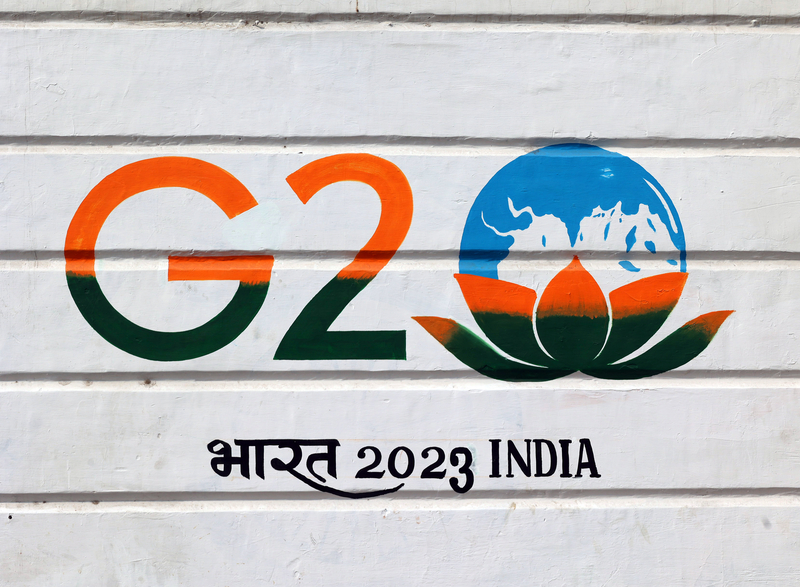 Indian Prime Minister Narendra Modi is preparing to host a summit of the world’s most ambitious forum, the G-20, at a time of immense geopolitical turmoil that could undermine democracy and security everywhere, including in America.
Indian Prime Minister Narendra Modi is preparing to host a summit of the world’s most ambitious forum, the G-20, at a time of immense geopolitical turmoil that could undermine democracy and security everywhere, including in America.
For Joe Biden, the Delhi summit of September 8-9 will be a significant occasion to reinforce ties with Modi and India since Russia’s Vladimir Putin will not attend and China’s Xi Jinping is unlikely to come.
With Modi’s support, Biden will be able to open more doors towards democracy and peace in the global south which is increasingly central to US diplomacy because of competition for influence with autocratic China and Russia.
He may also succeed in using Indian technical prowess to counter some of the online misinformation about US democracy that Beijing and Moscow will try to spread in developing countries ahead of the November 2024 presidential elections.
The recent military coups in Niger and Gabon illustrate the urgent need for Washington to reach out more skillfully to countries in Africa with Delhi’s collaboration because it has good relations with all of them.
The undoing of democracy has accelerated in West and Central Africa with 10 attempted coups since 2020. In Niger and Gabon, people poured onto the streets to celebrate and there was jubilation in Guinea when the military took control in 2021. Earlier, there were coups in Burkina Faso and Mali. Chinese and Russian influence and anti-Western protests have grown in all those countries.
Modi is determined to include the 55-nation African Union in the G-20 as a collective member, similarly to the EU, to give Africa a voice at the top table of global economic cooperation. Biden strongly supports this initiative.
Understandably, Putin will not attend because of the cold reception he would get from the G-20’s Western members. But Xi’s absence will be a surprise. He still hasn’t turned down Modi’s invitation but is expected to send Premier Li Qiang instead.
The Biden-Modi meeting scheduled for September 8 is notable because, Modi leads the most significant country in international diplomacy after the US, China and Russia.
His current strength is that he has friendly relations with all G-20 members, which is not the case among the other three powers because both Russia and China are openly hostile towards the US.
They are also rapidly tightening bilateral security, economic, trade and financial ties between them to weaken the geopolitical influence of America and its Western allies.
Against this backdrop of disarray in the US-led international order, Modi is emerging as a reliable friend in need for Biden as Washington faces down a warring Putin and a menacing Xi.
The Indian Prime Minister is steadfastly standing beside Biden in countering China in the Indo-Pacific region and to de-escalate Russia’s war in Ukraine. In so doing, Modi is following India’s ancient civilizational belief translated as “One Earth, One Family, One Future”.
In a statement announcing Biden’s trip, the White House said, “While in New Delhi, the President will also commend Prime Minister Modi’s leadership of the G20 and reaffirm the US commitment to the G20 as the premier forum of economic cooperation, including by hosting it in 2026.”
G-20 is unique because it comprises the United States, China and Russia as well as the G-7, which contains America’s richest and most militarily powerful allies: Canada, France, Germany, Italy, Japan and the United Kingdom. The 27-nation European Union (EU), a close US ally, is a collective member of the G-20 and G-7.
G-20 also contains the world’s most powerful emerging economies: Argentina, Brazil, India, Indonesia, Mexico, Saudi Arabia, South Africa, South Korea and Turkey. As summit guests, Modi has invited Bangladesh, Egypt, Mauritius, Netherlands, Nigeria, Oman, Singapore, Spain and the United Arab Emirates (UAE).
The group accounts for about 80% of global gross domestic product (GDP) but faces divisions over trade, climate change, financial stability and debt relief for the world’s poorest nations. Differences also persist over G-7 attempts to use it to roundly condemn Russia’s unprovoked invasion of Ukraine.
Xi’s indecision on attending the summit may be because he wants to avoid meeting Biden, rather than a desire to snub Modi. Biden is keen to meet Xi to reduce diplomatic tensions but Xi’s Chinese culture puts primal importance on not losing face.
Loss of face is possible if Xi meets Biden in Delhi but fails to dismantle the ever-tighter punitive sanctions on China, worsened by his embarrassment at China’s faltering economy and diplomatic weakness in relation to Washington and its European allies.
Photo 275375517 © Meunierd | Dreamstime.com
















